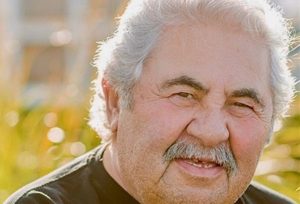I am often asked what the best diet is. Studies have shown that for weight loss, whichever diet you choose is acceptable, as it’s all about adherence. Whatever diet you can stick with and incorporate into your daily life is the “best” diet for you.
Yet it is important to understand the true meaning of the word “diet.” I cannot emphasize enough how much potential harm comes from our society’s insistence that dieting simply means restricting our caloric intake, in order to lose weight.
Rather than finding one of the dozens of fad diets that have had their 15 minutes of fame over the past 50 years, the current trend of working to maintain a healthy weight is far more beneficial.
READ: HEALTHY AGING: THE ORIGINS OF THE OBESITY EPIDEMIC
In my book – A Woman’s Guide to Healthy Aging – I look at some of the problems associated with our modern diet and consider some common-sense solutions that can help reduce long-term health risks. I call this the “non-diet diet.”
The non-diet approach is a more balanced, realistic way to lose weight and maintain good health. It utilizes nourishing foods, daily physical activity, positive thinking and smart lifestyle choices. Following Canada’s Food Guide, it includes:
• Making fibre your friend. Fibre keeps our digestive systems running smoothly and also keeps us feeling full for longer. Add flax seeds and chia to that yogurt for extra fibre and antioxidants.
• Get cooking! Make healthier versions of your favourite takeout dishes and avoid fried foods.
• Eat your fruit and veggies and your leafy greens. Some fruits are higher in sugar, such as pineapples and cherries, so choose high-fibre fruits, like berries and citrus.
• Add polyphenol-rich brain foods – such as blackberries, cherries, plums and walnuts – to your diet, as they are a good source of antioxidants.
• Reduce your fat intake
• Increase your intake of omega 3-fatty acids by eating fish more often.
• Get your daily calcium requirements, ideally from food sources such as milk, yogurt and dark green vegetables, rather than tablets, which are often hard to absorb.
Losing even a small amount of weight – say, five pounds – increases the body’s ability to metabolize sugar. Weight loss also decreases the pressure on our joints. For example, for every pound of weight loss, there is a decrease of four pounds of pressure on our knees. So a five-pound weight reduction will decrease pressure on our knees by 20 pounds. Likewise, cholesterol levels improve and blood pressure often decreases when people lose weight and exercise.
Any way we look at it, nutrition, exercise and sleep are among the major factors that affect health. One very important thing to realize about these factors is that they are within our control.
Sure, other factors beyond our control also affect health, including family history and genetic inheritance, sex and age. While we cannot do much about those things, we can change how we eat, how active we are and how well we sleep. And for many of us, making some changes to our lifestyles is necessary if we want to live long and healthy lives.







